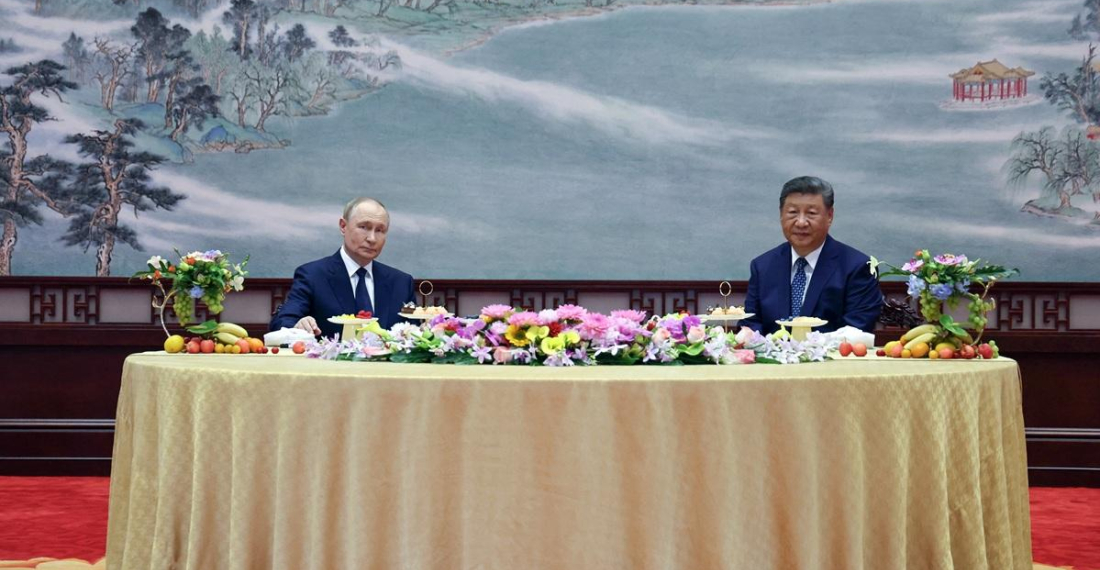Chinese leader Xi Jinping welcomed Russian President Vladimir Putin as an “old friend” as the two began a series of meetings Tuesday at a time when their countries face both overlapping and differing challenges from the United States. Relations between China and Russia have deepened in recent years, particularly after the Russian invasion of Ukraine in early 2022. According to AP, Putin addressed Xi as “dear friend” and said that Moscow’s ties with Beijing are “at an unprecedentedly high level.” Following their formal talks, they planned to have another meeting over tea with some of their top aides. The talks come the day after both attended a summit of the Shanghai Cooperation Organization in the nearby Chinese city of Tianjin, and the day before a grand Chinese military parade in Beijing to mark the 80th anniversary of the end of World War II.
The Soviet Union was neutral for much of the war in Asia, but provided assistance to China in earlier fighting against invading Japanese forces in the 1930s. It also declared war on Japan in the last days of World War II and sent troops over the border into Japanese-occupied northeastern China. “We were always together then, we remain together now,” Putin said, according to AP.
China says it is neutral in the Ukraine war but has provided an economic lifeline to Russia by continuing trade despite western sanctions. Some of its companies have been accused of abetting the military industry. The summit of the 10-member Shanghai Cooperation Organization brought Xi and Putin together with Indian Prime Minister Narendra Modi, who held separate talks with both leaders on the sidelines of the meeting.
U.S. President Donald Trump’s steep tariffs on India and the tone coming from the White House have pushed New Delhi closer to China and Russia, though Modi will not attend China’s military parade, AP reports. Putin and Xi held a three-way meeting with Mongolian President Khurelsukh Ukhnaa ahead of their talks. His landlocked country of grasslands and mineral mines is sandwiched between the two giants.
Putin said in opening remarks that the three countries are good neighbors, with a shared interest in developing ties. “Our three countries have much in common,” he said. In 2024, Putin made an official visit to Mongolia, where the government ignored calls to arrest him on an International Criminal Court warrant for alleged war crimes stemming from the invasion of Ukraine.
Meanwhile, thousands of troops will march in a huge military parade in Beijing on Wednesday to commemorate the 80th anniversary of the defeat of Japan and the end of World War II.
The leaders of North Korea, Russia and Iran will join President Xi at the event, a grouping labelled the "axis of autocracies" by some Western commentators. It is North Korean leader Kim Jong Un's first visit to China since 2019, and the first time he will appear in public with Xi and Russia's Vladimir Putin together.
All eyes will be on the seating arrangements of Xi, Putin and Kim and how they interact with each other in a photo opportunity likely to be highly choreographed. The attendee list "underscores China's role as the world's leading authoritarian power", the Asia Society's Neil Thomas wrote on X.
Most Western leaders will stay away, but Slovakian Prime Minister Robert Fico and Serbia's President Aleksandar Vucic will attend. Both are close to Putin and broke ranks with the European Union to visit Russia for its Victory Day parade in May.
Since the 70th anniversary parade in 2015, Xi has fully consolidated his power as head of China's Communist Party, the military and the country as a whole, James Char from Singapore's Nanyang Technological University told AFP. The presence of other Chinese officials could offer clues about shifts within the CCP.
In 2015, Xi shared the stage with predecessor Hu Jintao, but Hu has rarely been seen in public since being escorted out of a key party gathering in 2022. In recent years, many military leaders have fallen foul of Xi's graft crackdown.
Following troop inspections, Xi is expected to speak. Commentators will be listening for references to the United States, as well as to island democracy Taiwan, which Beijing claims as its own. Xi may reiterate claims that China's World War II contributions mean "they and not just the US, have a right to determine global governance norms", according to the Brookings Institution's Margaret Pearson.
Many observers will view the weapons on display through the lens of a potential future conflict with Taiwan. The military band will include 80 buglers to mark the years since Japan's surrender, state media said.
According to AFP, over 1,000 musicians will be arranged in 14 rows to symbolise the years of China's resistance, official CCP histories date the war from Japan's 1931 invasion of Manchuria. Spectators in Tiananmen Square will sit on green, red and gold chairs to symbolise fertile land, the people's blood and peace, CCTV said.






